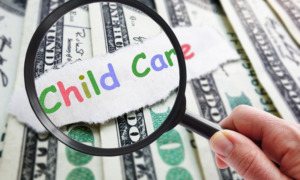Music, Sex and Responsibility
Music has an enormous influence on young people, but it’s usually adults who worry about that influence.
In the articles below, young people cast a critical eye on the recording industry, looking at how some performers and their lyrics promote misogynist attitudes and sexual irresponsibility.
Being Pimped Ain’t Easy
By Moya Bailey, 20
Last year, the rapper Nelly was ejected from a mall for being in violation of the dress code. He was wearing a do-rag. The local National Action Network, a black civil rights group, was all over it. Showing up the following day 150-strong, wearing bandanas and do-rags, they accused the mall of promoting a racist policy toward African-Americans. The Rev. Al Sharpton, president of the organization, issued a travel advisory, warning black people not to patronize the mall because of its discriminatory practices.
The black community was ready to rally to Nelly’s aid for being thrown out of a mall, but has remained eerily silent about the blatant misogyny in his lyrics.
Don’t get me wrong, I’m a huge believer in free speech and know that Nelly has every legal right to call me and my black sisters “bitches and ho’s.” I just don’t understand why the leadership in the black community thinks that it is OK.
Atlanta Mayor Shirley Franklin recently attended a fund-raising event for a charity founded by locally based rap superstar Ludacris. This followed the controversy surrounding his being dropped from Pepsi as an endorser because of his sexually explicit lyrics. She said that his charity was separate from his music, and, since the two weren’t connected, she could support his foundation. It seems black women are so undervalued in this society that not even we will fight for ourselves.
These are a few examples in a long list of instances where misogyny, patriarchy and the degradation of black women in rap music is ignored or overlooked by the bigwigs in the black community. The Grammys have even come to embrace these negative aspects of hip-hop music, nominating for an award Nelly’s “Hot in Herre” in which he instructs women to take off their clothes and asks “what good is all the fame if you ain’t f——-g models?”
To be fair, these lyrics are surprisingly tame when compared to others or even the visual images accompanying such a song. As scantily clad women gyrate around fully clothed slightly swaying men, the message is clear: Women are simply sex objects to be ogled and had. Put most succinctly by rapidly rising 50 Cent: “I’m into having sex, ain’t into making love.”
R. Kelly, provider of such R & B gems as “Feelin’ on Your Booty” and “The Greatest Sex,” is reaping benefits from his high-profile child pornography accusations. He continues to produce music and the profits continue to roll in. As a friend astutely pointed out, had the videotape revealed Kelly having consensual sex with an underage boy, the community would be in an uproar. But because it was a girl, she has been dismissed as another oversexed fan who knew what she was doing.
It’s not fair. It’s not fair that these male rappers continue to demonize and brutalize women in songs and videos and the female voices who try to challenge these characterizations are silenced. Poet and activist Sarah Jones, daughter of legendary poet/activist LeRoi Jones (Amiri Baraka), released a single called “Your Revolution. . . .” The song draws inspiration from “The Revolution Will Not Be Televised” by Gil Scott Heron. She [Jones] took sexist misogynistic lyrics from existing songs that get radio play and wove them into a declaration of how she will not be used and mistreated. When her song was banned by the FCC, no black leaders came to her aid.
Hip-hop’s irreverence toward women is now being used as a marketing ploy. In a recent Heineken ad, Rapper Jay-Z dismisses his female guest’s request for a drink refill, opting instead to get himself a Heineken. There seems to be a complete lack of criticism of this new advertising trend from men and even women journalists.
As far as I can tell, the best way to combat these negative images of women in lyrics and videos is to hurt the industry in the pocket by not buying this music any more. The music industry is being upheld right now by hip-hop, and a severe dip in sales might be the warning needed for artists and record companies to change their ways. I’m not saying you can’t listen any more. You can download artists that don’t need to be supported and buy the records of those who do. It is important that you only use your buying power to support artists who do not present misogynistic views of black women.
I know it’s hard. I have been known to bump the Ignition remix on my computer. That’s why providing alternative artists and songs is so important. We can write our own songs, create our own beats. Producing lyrics and images that counter this misogyny is a step we all can take.
I’m going to make my own CD. I’m going to call it “Being Pimped Ain’t Easy.” Look out for hot tracks like “I’m Not a Ho,” “Why Can’t I Be Fully Clothed?” “I Don’t Want Your STDs” and “I Don’t Want to Date a Playa Because. …” I’m going to have a hot video too. I’m going to rock the ice (of the H2O variety), show off all my cars (at a Mercedes dealership) and have male dancers (oiled up and grinding on each other, barely clad).
Maybe that’s what it will take to get some support from the leadership in the black community.
Kids Call for HIV Lessons in Hip-Hop
Edited by Charles Hamilton, 15, Jose Molina, 17, Tarissa Whitley, 14
At a “Hip Hop & Youth – Politics & Strategies” workshop held during the Rainbow/Push Wall Street Project Conference early this year, young attendees talked with Children’s PressLine about what responsibilities hip-hop artists have in addressing HIV/AIDS.
Q. How is AIDS addressed in your community?
Takia, 16, Bronx: AIDS is not addressed in my circle. No one actually knows what AIDS is or how can you get AIDS or what you can do to stop or prevent AIDS.
Q. What type of responsibility do hip-hop artists have to address AIDS?
Takia, 16: A lot of them talk about sex. They open it like it’s no big deal, like it’s a candy. They don’t tell kids that sex isn’t something that you just do. It comes with consequences. It’s not something you just have.
Ighorn, 13, Bronx: I think they do address it how they should. My fellow students always talk about how AIDS is a bad disease, which it is, so everyone should just have protected sex to protect themselves.
Mark, 14, Long Island: They don’t address the negative part of it and they don’t address the aftermath of what happens.
Q. How can hip hop erase the stigma of HIV/AIDS?
Mark, 14: By writing songs about what happens when you do it and what happens after you do it, rather than just what happens before you do it.
Takia, 16: Instead of talking about all this stuff in their music – for example, Lil’ Kim talking about I did this or I did that – they should teach the kids that you don’t do that. There needs to be more responsibility. There needs to be more organization. People need to get more involved.
Q. Do you ever feel threatened by AIDS?
Francois, 13, Brooklyn: Sometimes I do feel threatened. Whoever you have sex with, you don’t know what they have. They only tell you after and then you know you’re going to pass away.
Barris, 15, Brooklyn: I’m scared that I might get it if I mess with the wrong girl. That’s why I wear condoms.
Below, two peer educators from the Bronx talk about their experiences as health advocates.
Joel, 17: A lot of the misconceptions and stereotypes are that it’s a gay disease and that’s completely wrong. Anyone is at risk – anyone that’s not using a condom. Every school needs to educate kids on health issues, especially HIV and other sexually transmitted diseases that teens are getting. You can catch an STD in such an easy way, it’s unbelievable. A lot of kids don’t know that. A lot of people are just making out with anybody and doing promiscuous behavior. They don’t realize that it’s so easy to catch an STD. In a blink of an eye you can catch something you can’t cure.
Christiana, 16: Everybody should think of it like this: I could get it, you could get it, any of us could get it. If you’re having unprotected sex or sharing needles of any kind, you’re at risk. Most people are scared to get tested because they’re scared to find out the truth. Like if they have it, they’re scared to get rejected. They should make getting tested for HIV mandatory. Half of the people out there [who are HIV positive] don’t know it.
Articles to be considered for publication must have been previously published. Youths will be paid for work published on this page. Submit articles to: Al Desetta, Youth Communication, 224 W. 29th St., 2nd Fl., New York, NY 10001. (914) 679-6314, adesetta@aol.com.

























